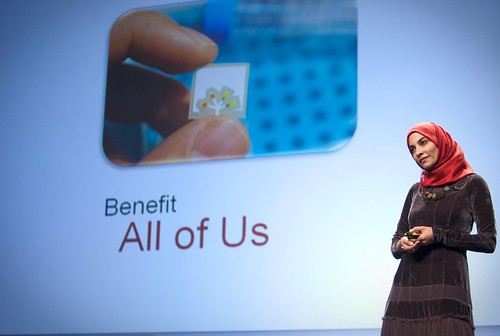We Need Facilitators Of Learning Not Speakers Of Stats
Presenting in my opinion is vastly over-rated.
I am not interested in instructing another person to know what he or she should think. I cannot control another person’s mind.
As much as I wish I could, I cannot make others know specific information or skills through a speech. They have to learn the information which comes from thinking about, practicing and using that information.
Teaching and training makes sense for an unchanging environment. If there’s one thing I know for sure it is that change is our constant. So teaching someone what to think doesn’t work in an ever changing world.
The Aim Of Education
The aim of education therefore must be the facilitation of learning.
The presenter becomes the facilitator of learning. The audience becomes the participants in their own learning.
When we see the learning process as a joint partnership, we understand that our role as a speaker is greatly diminished. It’s then that we move away from trying to control another human being and instead inviting them to observe, think and learn.
I am very interested in facilitating experiences so that another person can identify what he or she believes and thinks. I am excited about creating education experiences where audiences learn something that has immediate relevance and value to their lives and work.
Facilitator Of Learning Guidelines
Here are seven guidelines to help speakers become facilitators of adult learning instead of lackluster lecturers.
1. The facilitator sets the initial climate of the learning experience.
Whether overtly or in subtle ways, the facilitator communicates his or her trust in the group, the individuals and the learning process.
2. The facilitator helps clarify the purpose of the presentation as well as extract each individual’s own goal.
The facilitator allows each participant the freedom to state why the topic is important to them.
3. The facilitator elicits each participant’s purpose and leverages the motivational force behind that learning.
Even if the participant’s desire is to be guided and led by another, the facilitator can accept that need and provide a course of action. The facilitator is able to leverage the participant’s own motivation to learn.
4. The facilitator regards his or her own identity as a flexible resource for the group.
The facilitator acts as advisor, coach, counselor and one with experience in the field. The facilitator is able to express his or her own feelings and beliefs that are not seen as judgments or the only way to think.
5. The facilitator sees each participant as a resource with experiences and knowledge.
As the climate becomes established, the facilitator is increasingly able to also become a participant learner.
6. The facilitator accepts both intellectual content and emotional attitudes from participants.
The facilitator aims to give each contribution the appropriate amount of emphasis. He or she also accepts rationalizing and intellectualizing.
7. The facilitator helps participants exploit their own experiences as related to the new topic.
The facilitator gears the presentation to the participants’ level of experience. The facilitator helps participants apply new content to their own knowledge and experience, thus integrating it.
What are some other conditions of learning that a facilitator needs to spur? What is the role of a subject matter expert in learning for an education program?



[…] jQuery("#errors*").hide(); window.location= data.themeInternalUrl; } }); } velvetchainsaw.com – Today, 8:38 […]
[…] For conference education sessions, a facilitator is one who provides an environment of attendee engagement that results in their learning. The facilitator provides resources such as questions, research, problems, content and case studies that attendees use. Here are seven guidelines to help speakers transition to facilitators of learning. […]
[…] For conference education sessions, a facilitator is one who provides an environment of attendee engagement that results in their learning. The facilitator provides resources such as questions, research, problems, content and case studies that attendees use. Here are seven guidelines to help speakers transition to facilitators of learning. […]